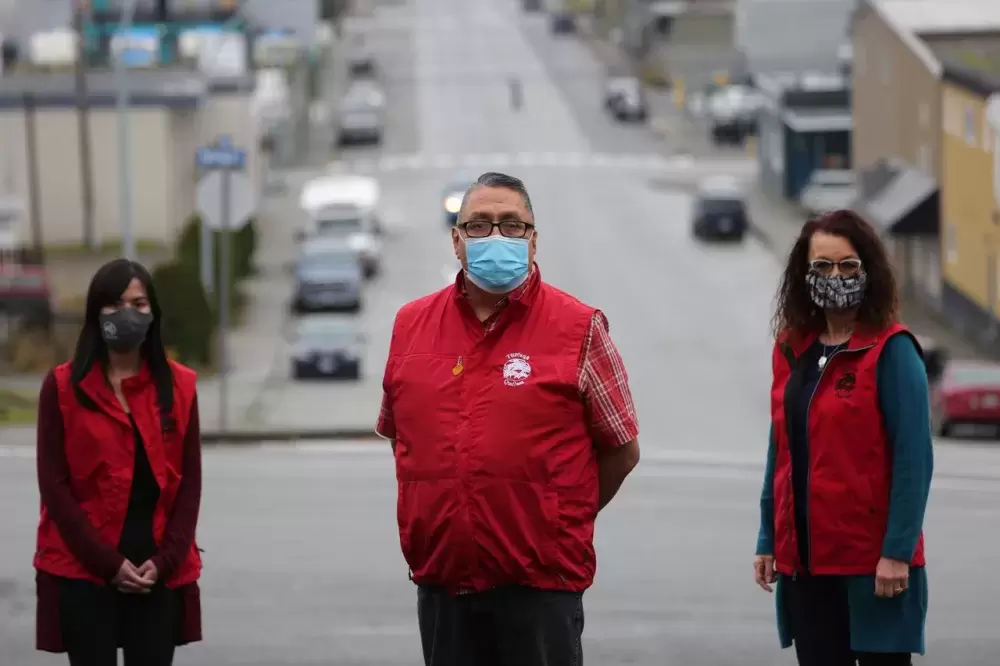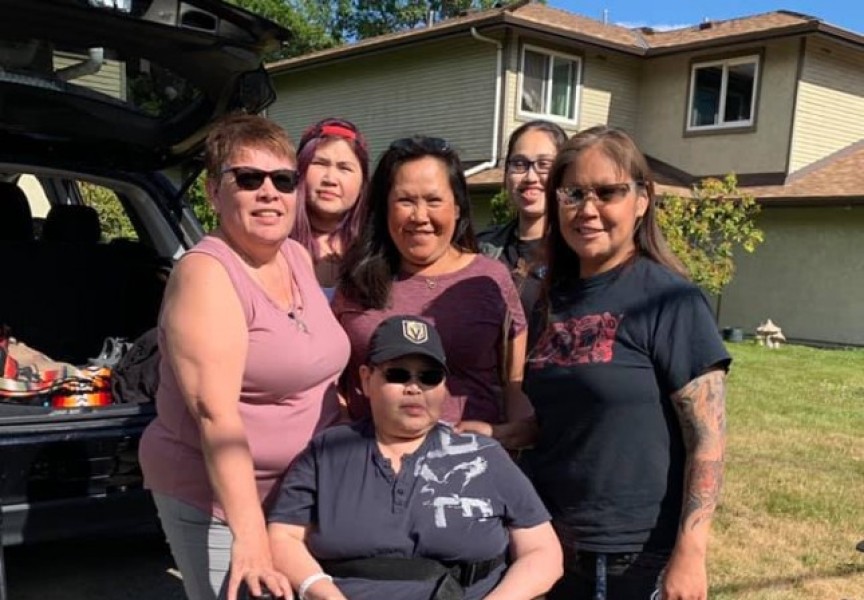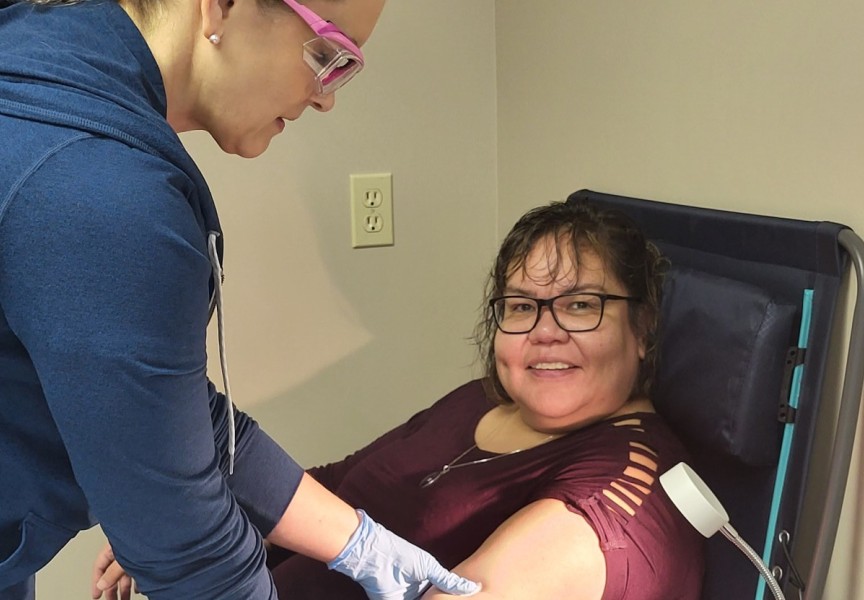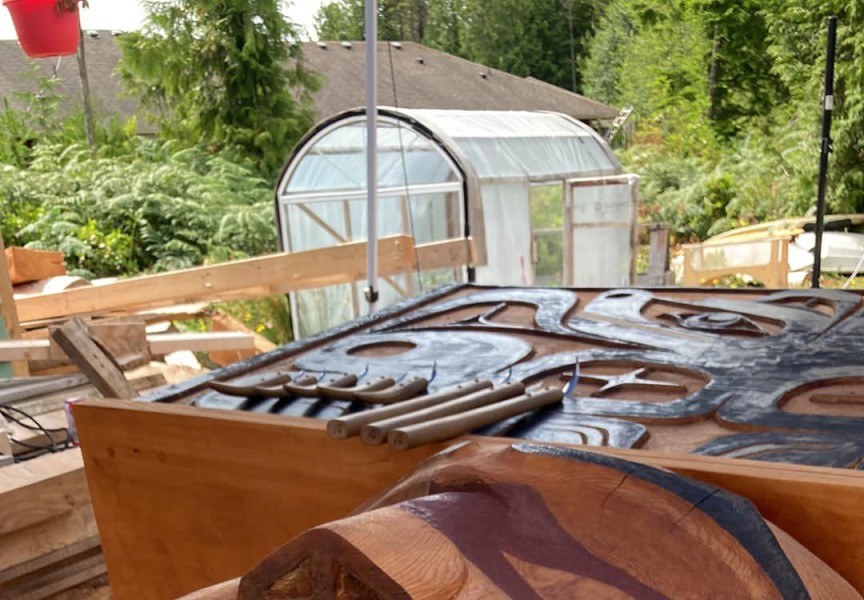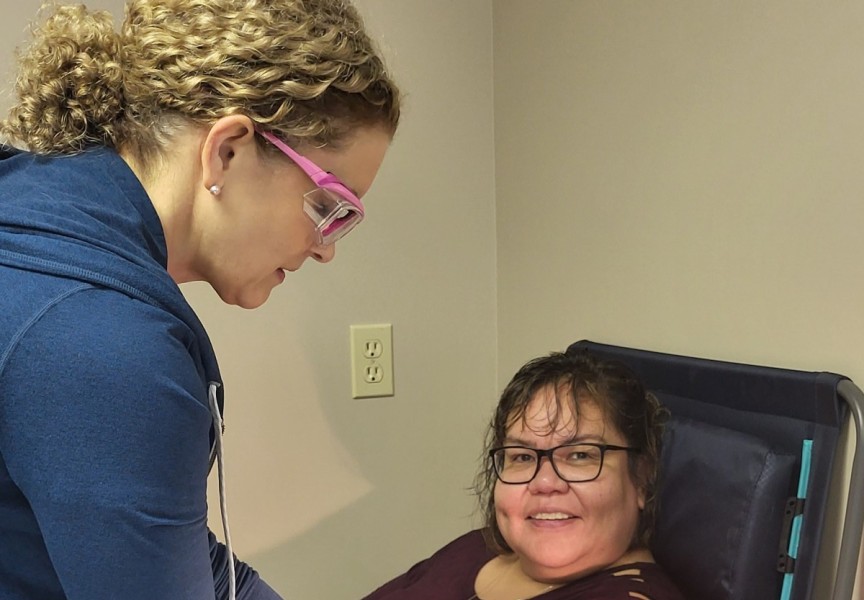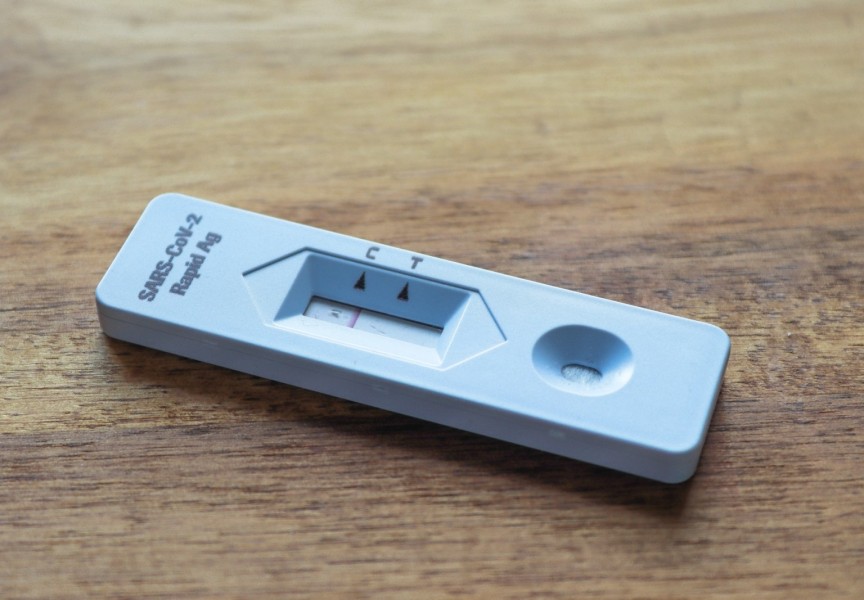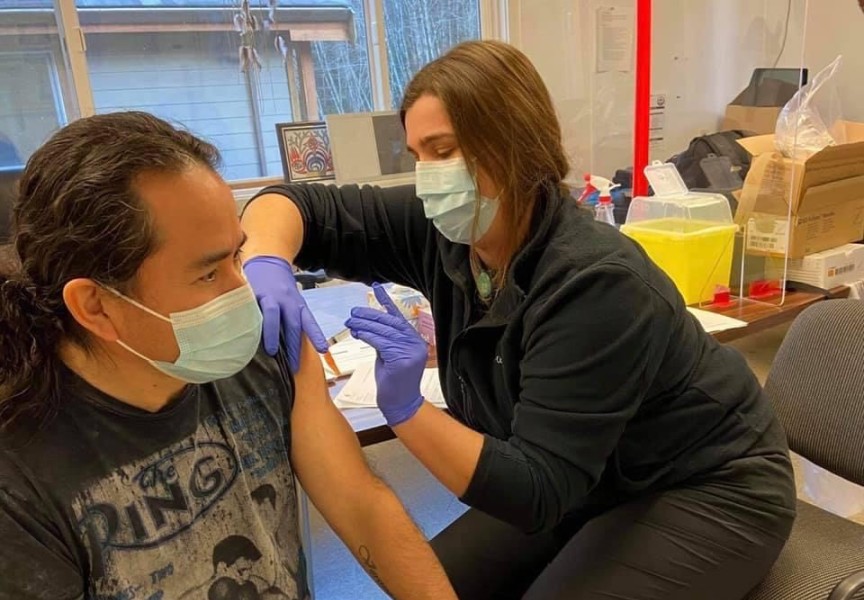Those who monitor the mental health of Nuu-chah-nulth-aht are urging people to find a healthy balance amid tightening COVID-19 restrictions that can lead to wintertime isolation.
The emotional and spiritual toll the pandemic has taken on people was a focus of the Nuu-chah-nulth Tribal Council’s Annual General Meeting, which was held this year on Nov. 24 via the online Zoom platform. The effects on mental health are becoming increasingly apparent, commented Medical Health Officer Charmaine Enns. The pandemic has brought a public health emergency for more than eight months, with measures of varying stringency that discourage personal contact in order to control spread of the highly contagious coronavirus.
Enns pointed to opioid crisis, B.C.’s other public health emergency that was in place before the pandemic took hold. The B.C. Coroner’s Service recently reported 162 suspected overdose deaths in October, twice as many as the monthly total from a year ago and the fifth month this year with over 160 illicit drug-related fatalities. So far 1,386 illicit drug deaths have been reported in 2020, while as of Nov. 30 441 fatalities have been attributed to COVID-19 in B.C.
The Coroner’s Service links a sustained increase in overdose deaths since March to the higher concentration of fentanyl in what people are getting off the street, but some point to the complex emotional effects of the pandemic as a factor as well.
“This is a function of isolation, mental health challenges, the many things that contribute to the drug toxicity deaths have been heightened and exacerbated during the pandemic,” said Enns during the AGM. “There’s really lots to be aware of as we balance approaches and interventions, so that people stay supported and the least amount of harm happens to people. There’s no easy way through this.”
Vina Robinson manages Teechuktl Mental Health, which offers front-line services to Nuu-chah-nulth people. She’s heard from her harm reduction workers that some people are using more drugs during the pandemic as a means of coping with trauma.
“If these people didn’t have our harm reduction team, we would have lost way more people,” said Robinson.
For work that relies on personal connections, functioning under the pandemic’s social distancing requirements has been a challenging adjustment, admits Stan Matthew, a training and prevention coordinator with Teechuktl. During the early days of the pandemic the number of reports of suicide ideation or attempts increased to three or four a week.
“We had to get really creative, because we couldn’t go knock on their door like we usually do,” said Matthew, noting that catching concerning messages on social media became an essential part of intervention. “One of the effects of the pandemic is that people feel really alone.”
After the spring Matthew saw the ideation reports decline, but concerning warnings could increase this winter. Active cases in B.C. exponentially increased this fall to nearly 9,000 by the end of November, leading Provincial Health Officer Bonnie Henry on Nov. 19 to introduce the strongest measures since schools and many businesses were closed in the spring. Until at least Dec. 7 masks are mandatory in all indoor public spaces. No social gatherings or events are permitted – including religious services – and B.C. households are directed to not host any visitors.
As British Columbia awaits the next update to Henry’s orders to control the virus’s surge, Matthew is anticipating a busy winter that more closely resembles the alerts he received in the spring.
“It slowed down, but I think if we continue to remain in this portion of the COVID, they may rise again,” he said.
Under normal circumstances, December can be a sad time for some people. This is particularly the case for former residential school students who, as children, couldn’t go home for the holidays.
Robinson knows some residential school survivors who might be triggered when they can’t visit their home territory this year due to on-reserve lockdown measures.
“They don’t get to go home, they don’t get to have a big dinner with their families, so it’s going to be even harder with the pandemic added to the already Christmas blues and depression that happens,” she said.
“A lot of our people who might have experienced traumatic events in life, for them to be alone was really difficult, because they’re used to being around people, and they’re used to having some type of support around them,” added Matthew. “For them to just be in their home by themselves caused a lot of anxiety, some depression. It also really, really affected our residential school survivors, because it felt like, again, they were being told what to do. They were told they had to stay in to isolate.”
Pandemic isolation isn’t only a hazard for elders, said Becky Nookemis, Teechuktl’s harm reduction coordinator.
“There are youth in Port Alberni who don’t have homes, who are in group homes or are living on the street,” she said. “They can’t go back to their communities because their communities are in lockdown. They’re alone here in Port Alberni.”
But this brings a greater need to connect with any means available. Judy North, Teechuktl’s crisis response clinical counsellor, encourages everyone to reach out to others before the isolation takes hold.
“If you’ve got a loved one living by themselves, give them a phone call, stand outside their door, wave at them, make them a Christmas card,” she said. “When we’re struggling, one of the best self cares is to reach out to somebody else to support them…reach out to give help.”
Robinson stressed the importance of regularly phoning elders.
“We want them to feel that they’re cared for and loved by us. I’m recommending that more people do that,” she said. “I don’t ever try and end the call, I let them end it.”
Matthew was surprised to get a call from an elder a few weeks ago that reciprocated this concern.
“It was one of the individuals I was calling to check in with all of the time,” he recalled. “The individual called me and said, ‘Hey Stan, I’m just checking on you. How are you doing? Are you okay? Are things well? Do you need anything?’ It really touched me.”
If you are struggling with mental health this winter, counseling is available 24 hours a day, seven days a week. Some examples are the Indian Residential School Survivors and Family Crisis Line at 1-866-925-4419, the Vancouver Island Crisis Line at 1-888-494-3888 and 1-800 Suicide at 1-800-784-2433.

